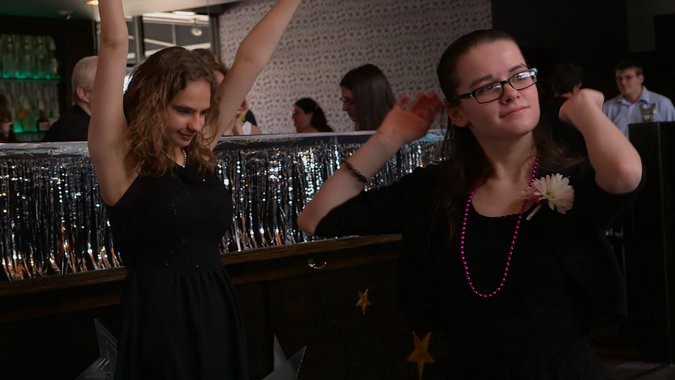“How to Dance in Ohio” is a portrait of young adults on the autism spectrum in the months leading up to a formal dance. After premiering at the Sundance Film Festival earlier this year, it will make its television debut tonight on HBO.
Alexandra Shiva is the founder of Gidalya Pictures, a Manhattan-based documentary production company. Shiva produced and directed “Bombay Eunuch” in 2001, which went on to win Best Documentary Feature at New York’s New Fest and the Special Jury Award at the Florida Film Festival. Her second documentary, “Stagedoor,” premiered at SXSW Film Festival in 2005 and began airing on the Sundance Channel. “How to Dance in Ohio” marks her third feature-length documentary. (Gidalya Pictures)
Shiva talked to Women and Hollywood about the personal relationship that inspired her to make the doc, her guiding principles as a filmmaker and advice on how to build a career as a female director.
W&H: Please give us your description of the film playing.
AS: In Columbus, Ohio, a group of teenagers and young adults on the autism spectrum prepare for an iconic American rite of passage: a Spring Formal. They spend 12 weeks practicing their social skills in preparation for the dance to be hosted at a local disco. It’s a story dramatized by individuals facing the deepest struggle toward social survival, and is really about the universal need in all of us to grow, connect and belong.
W&H: What drew you to this story?
AS: I have always been drawn to stories about people searching to belong. A daughter of very close friends of mine is on the autism spectrum and she is non-verbal. As I’ve watched her grow up, I’ve wondered what coming of age would look like for her and thought about the specific issues that face girls with autism as they move into adulthood.
W&H: What was the biggest challenge in making the film?
AS: The biggest challenge was balancing the information a viewer needs to know about autism spectrum disorder with the immersion in the daily lives of people in the film. It was very important for me that the struggles and obstacles that ASD adds for them were presented in a dramatic way, but in a way that the audience could understand and recognize without getting lost in clinical language or statistical data.
W&H: What do you want people to think about when they are leaving the theater?
AS: I knew when I started making this film that I wanted to try to give the audience the feeling that they are there with our subjects, rather than watching them from a great distance. I worked hard with both my Director of Photography, Laela Kilbourn, and my Editor, Toby Shimin, to achieve this.
Although it’s often difficult to relate to experiences that are not our own, the access the subjects allowed our team hopefully allows people to connect with what they see and reflect on their own struggles. My work often seems to circle back to the notion that there are many different ways to be a person, and I hope the intimate nature of this film allows that to resonate for everyone. I hope they fall in love with these individuals as much as I did.
W&H: What advice do you have for other female directors?
AS: I can only refer to my experience as a documentary filmmaker. My advice is to find stories that deeply interest you and that can sustain your interest for a long time, since making a documentary is often an exercise in endurance. Also, connect with other female directors whose work you admire and respect.
W&H: What’s the biggest misconception about you and your work?
AS: That I make films that focus on the differences in people who are considered misfits or outliers, when what I’m actually interested in is belonging and connection.
W&H: How did you get your film funded? Share some insights into how you got the film made.
AS: We secured financing from funders with a specific interest in the subject.
W&H: Name your favorite woman-directed film and why.
AS: Jennie Livingston’s “Paris is Burning.” It was on the cutting edge of exactly what I’m interested in. She highlighted a community that created entire kinship structures outside of the mainstream and, in doing so, found family, connection and belonging.







